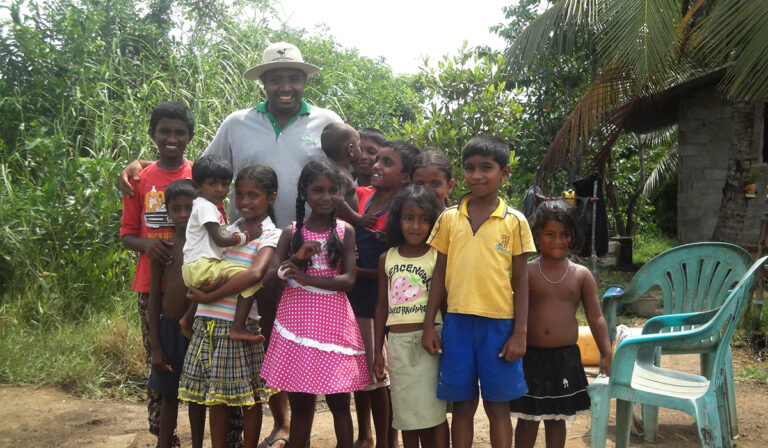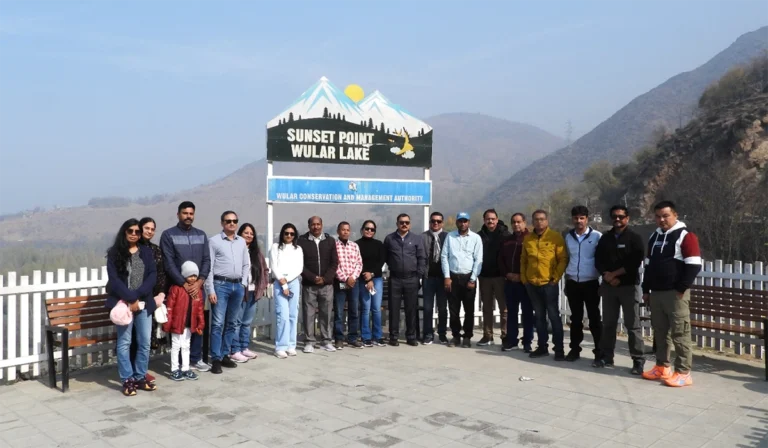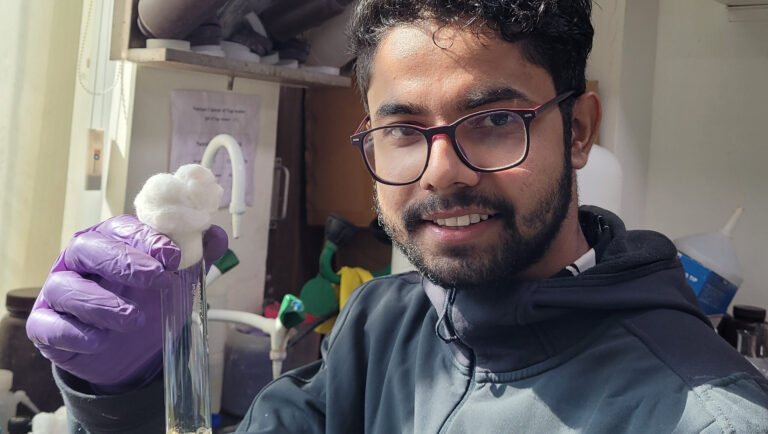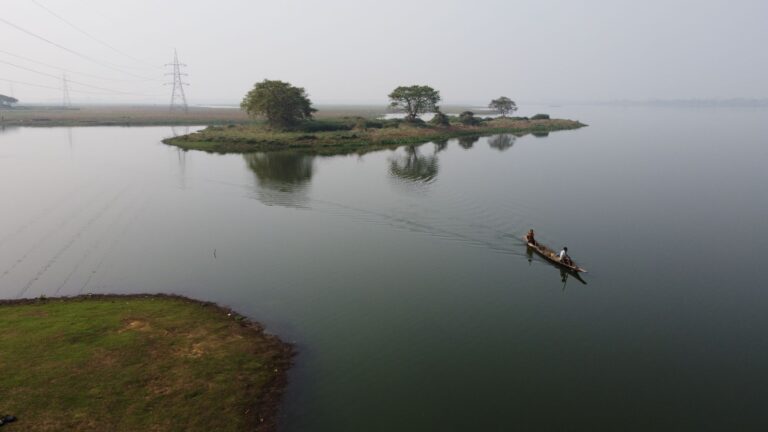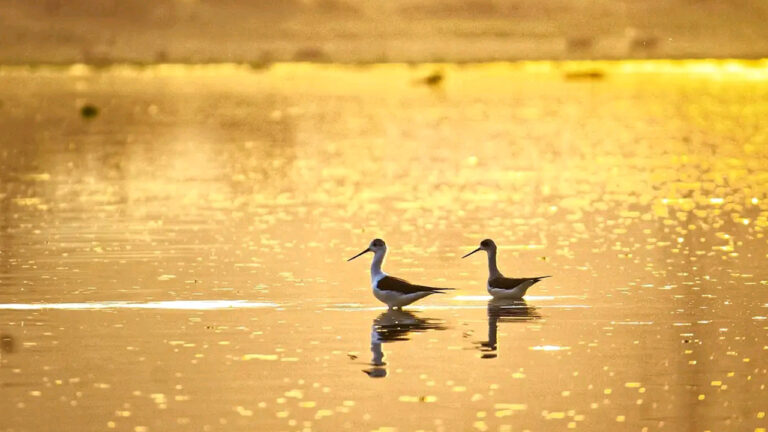INDIA, ASIA
Deepor Beel
Located in the valley of the Brahmaputra River in India's Assam region, Deepor Beel - meaning ‘The Lake of the Elephants’ in Assamese language - is a permanent lake that formed in an ancient channel of that mighty river. The lake's wildlife includes elephants and thousands of migratory birds that take refuge there every year, as well as countless resident waterfowl. Because of its rich biodiversity and ecological importance, Deepor Beel was recognised as a Ramsar Site in 2002, and as an Important Bird and Biodiversity Area (IBA) in 2004, in addition to its declaration as a Bird Sanctuary by the Government of Assam in 1989.
For hundreds of years, the local communities on its shores lived off its rich resources, freshwater and the plentiful food it provided. But the degradation of the wetland in recent years is seriously impacting the livelihoods of those who depend on it. Almost one million people live by the beel in the city of Guwahati, putting increasing pressure on the ecosystem.
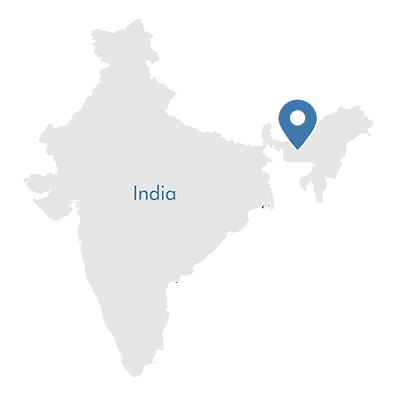

Biodiversity
The beel is especially critical for biodiversity due to its magnificent birdlife – some migratory species that can be spotted there are the white-eyed pochard, the greylag goose, Baer’s pochard and the gadwall, a dabbling duck.
Many of the birds that find refuge in the beel are included in the IUCN Red List, such as the Lesser Adjutant Stork, the Spot-billed Pelican, the Baer’s Pochard, the Greater Adjutant Stork and the White Bellied Eagle.
But probably the most charismatic members of the beel’s wildlife are the Wild Asiatic elephants that sometimes visit the lake, looking for freshwater to quench their thirst and forage the aquatic vegetation. They come from the Rani and Garbhanga Reserve Forests in Kamrup East Division. In summer, beautiful and diverse plants cover the surface of the beel – the colourful flowers of the water hyacinth and water lilies, or the water lettuce, duckweed, tape grass, hydrilla and water bindweed.



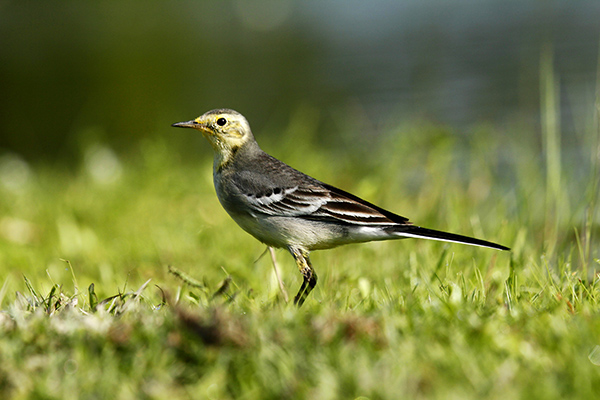
Highlighted Species
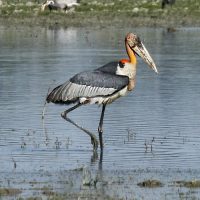
Greater Adjutant Stork
Leptoptilos dubius

Asiatic Elephant
Elephas maximus
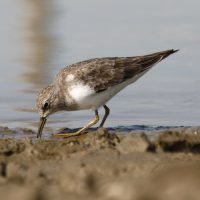
Common Sandpiper
Actitis hypoleucos

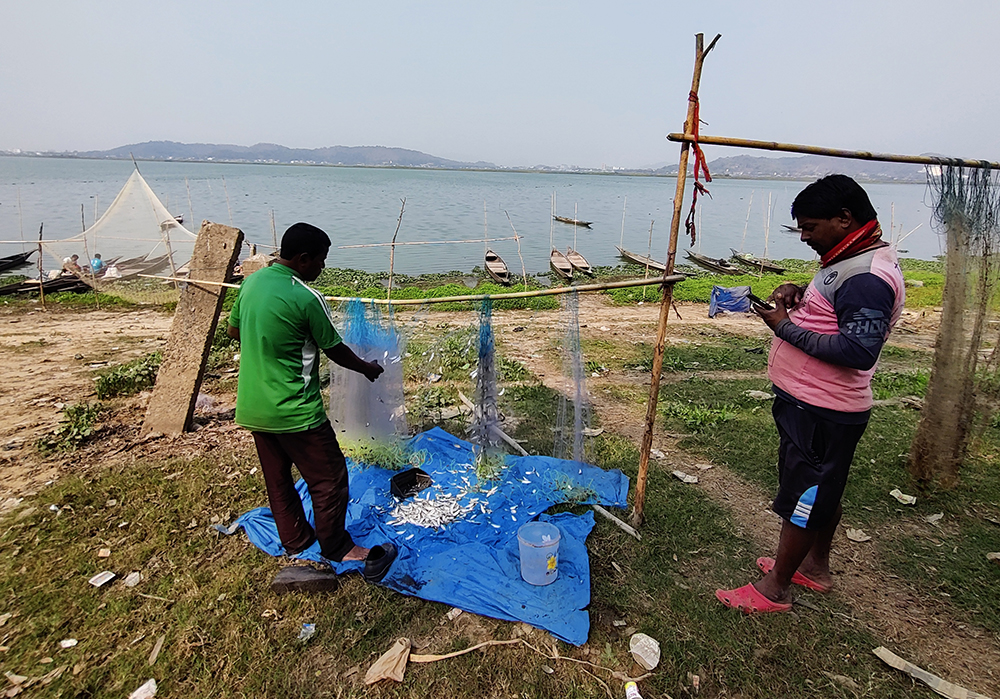
Local Communities
For local people, Deepor Beel has traditionally been a pillar of their livelihood, providing fodder for domestic cattle and foods like vegetables, flowers, aquatic seeds, fish or molluscs and other essential requirements. The beel provides drinking water to the local communities, and many local families make their living from its rich fishery. For people living under the poverty line around the lake, the fish and other lake animals are an important source of protein.
Many nature lovers and residents of the Guwahati city often visit the lake to enjoy the serenity of the landscape and its natural beauty.
Threats
The wetland is heavily degraded by various human causes, and its original area has already shrank by at least 35% to a current area of 4,014 hectares.
Threats to Deepor Beel include:
– Land reclamation and expansion of the Guwahati city.
– Fragmentation of hydrological regime.
– Invasive and alien species.
– Siltation.
– Pollution.
– Unregulated recreation and tourism.
– Overharvesting of resources.
– Dumping of municipal waste on the edge of the wetland.
– Encroachments.
The connectivity of Deepor Beel with small rivers like the Kalmoni, Khonajan and Basistha is also being lost, and this puts the wetland in a precarious state as these river channels used to bring freshwater to the Beel. The railway line that borders the Deepor Beel along its southern edge is a major threat to its wildlife, especially to the elephants, as it hinders their movement through the identified elephant corridors. The infrastructure also affects the resident and migratory birds, and many animales, like snakes and tortoises, have been found crushed to death on the tracks
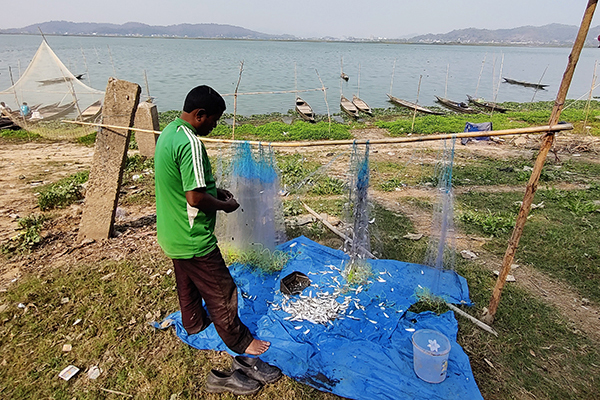

Our Work
As part of the Living Lakes Biodiversity and Climate Project, the Nature Environment and Wildlife Society (NEWS) of India will work to engage all stakeholders on the development of an Integrated Management Plan for the Deepor Beel wetland, a tool that is urgently needed to conserve and restore this precious ecosystem. NEWS has planned several direct consultation events and knowledge sharing workshops among the Government authorities, Civil Society organizations, the scientific community and the local population, to ensure that actions are coherent and well targeted.
The NEWS team will also work alongside the local community with capacity building programs, to foster improved livelihood options for farmers and fishermen. These actions will put a focus on local youths and women, and in the development of nature-positive business and livelihood options. The project has planned the development of a pro-biodiversity Nature Tourism business model, governed by the community.
Youth also play a vital role in the conservation of Deepor Beel – that is why the project also will engage with young lake managers, offering training and tools to help them develop as lake conservation leaders.

